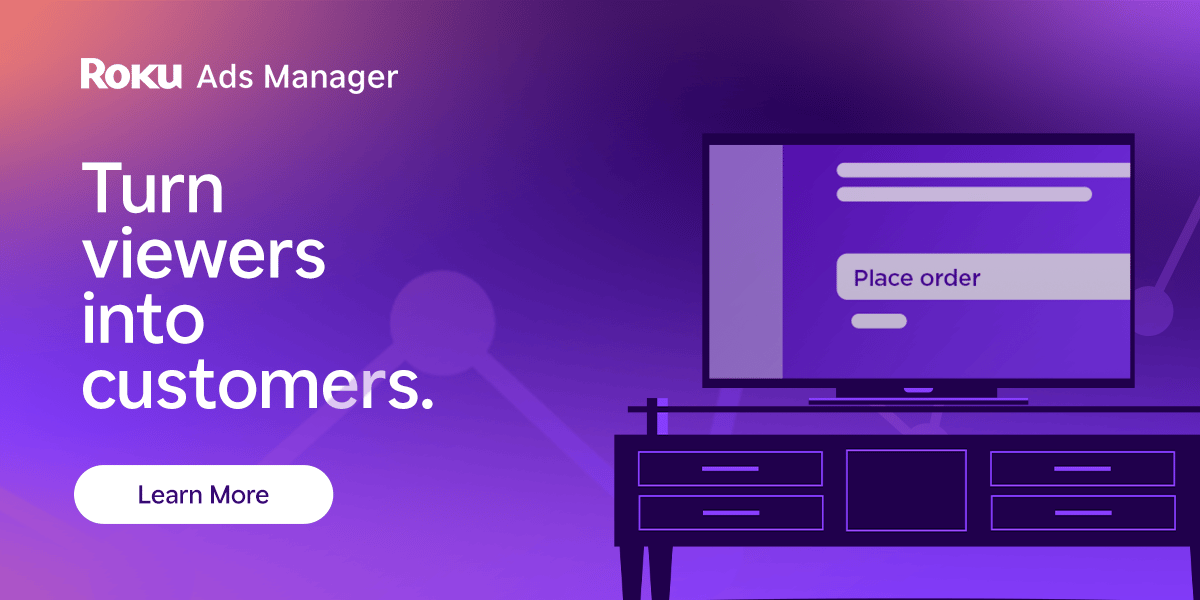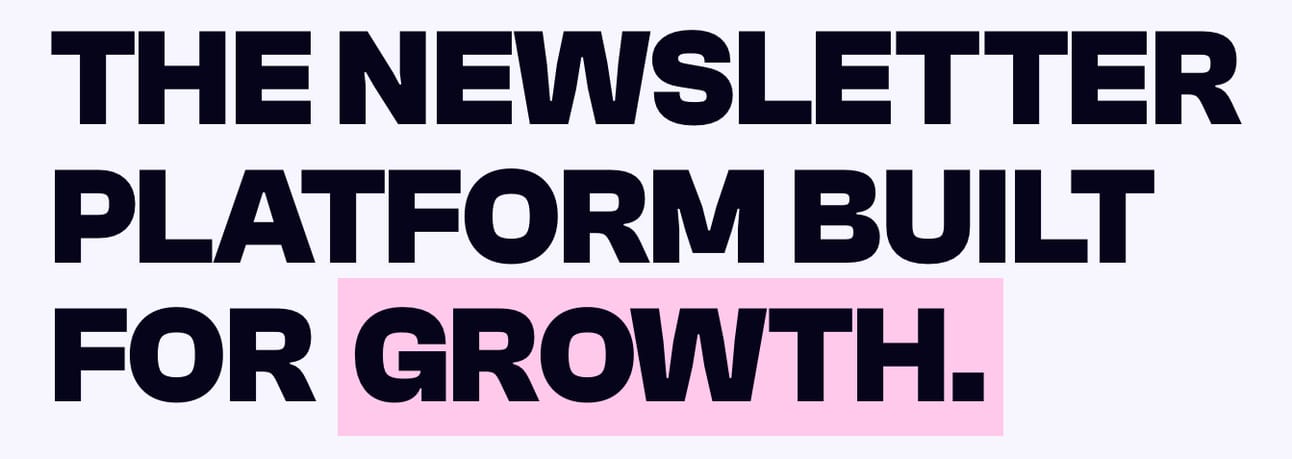Hey, Grow Newsie reader!
If you're monetizing your newsletter through ads (or planning to), 2026 is shaping up to be a transformative year. The newsletter advertising landscape is evolving rapidly, driven by AI, automation, and changing privacy regulations.
Let's dive into the key trends that will define newsletter advertising in 2026—and how you can capitalize on them.
Sponsored by: ROKU
Shoppers are adding to cart for the holidays
Over the next year, Roku predicts that 100% of the streaming audience will see ads. For growth marketers in 2026, CTV will remain an important “safe space” as AI creates widespread disruption in the search and social channels. Plus, easier access to self-serve CTV ad buying tools and targeting options will lead to a surge in locally-targeted streaming campaigns.
Read our guide to find out why growth marketers should make sure CTV is part of their 2026 media mix.
1. AI-Powered Personalization Takes Center Stage
Newsletter advertising is moving beyond basic demographic targeting. In 2026, AI-driven personalization will enable advertisers to deliver hyper-relevant ads based on individual reader behavior, preferences, and engagement patterns.
What This Means for Publishers:
Dynamic ad placements that change based on each subscriber's interests
Higher click-through rates (CTRs) as ads become more relevant
Potential for premium CPM rates due to improved performance
Action Step: Consider platforms that offer AI-powered ad optimization. Tools that analyze subscriber behavior can help you command higher rates by proving better engagement metrics.
2. Programmatic Advertising Expands in Newsletter Space
Programmatic advertising in newsletters is gaining serious momentum. By 2026, programmatic display ad spending is projected to exceed $200 billion globally, with newsletters capturing an increasing share.
The Shift:
Manual ad buying is being replaced by automated, data-driven transactions
Private marketplaces (PMPs) give publishers more control over inventory
Real-time bidding ensures you're getting optimal rates for each impression
What to Know:
Platforms like Paved, LiveIntent, and Google's newsletter ad solutions are making programmatic accessible
You can maintain editorial control while benefiting from automated optimization
Expect programmatic to become the default by mid-2026
Action Step: Explore programmatic platforms that fit your newsletter size. Even smaller publishers can access programmatic inventory through ad networks.
3. CPM Rates Remain Strong (But Context Matters)
Current newsletter CPM rates range from $15-$30 for general audiences, with niche newsletters commanding $50-$150+ for highly targeted demographics.
2026 Outlook:
Business and B2B newsletters can charge $30-$100 CPM
Consumer newsletters typically see $15-$30 CPM
Luxury and investor-focused newsletters can exceed $100 CPM
Key Factors Affecting Your Rates:
Niche specificity: The more targeted your audience, the higher your rates
Engagement metrics: Open rates above 40% and CTRs above 3% justify premium pricing
Audience quality: B2B and professional audiences command higher rates
Action Step: Benchmark your rates against industry standards, but don't underprice. Quality engagement beats raw subscriber numbers.
4. Native Advertising Becomes the Norm
Readers are experiencing "banner blindness," and traditional display ads are losing effectiveness. Native advertising—ads that match the look, feel, and editorial style of your newsletter—are seeing engagement rates 53% higher than traditional formats.
Why Native Ads Work:
They blend seamlessly with your content flow
Readers perceive them as recommendations rather than interruptions
They maintain trust while still generating revenue
Best Practices for 2026:
Clearly label sponsored content for transparency
Maintain editorial voice even in sponsored sections
Limit native ads to 1-2 per issue to avoid overwhelming readers
Action Step: If you're using banner ads, test native ad formats. Track engagement differences and adjust your ad strategy accordingly.
5. Privacy-First Advertising Gains Ground
With third-party cookies disappearing (despite Google's delays) and privacy regulations tightening, newsletter advertising has a distinct advantage: first-party data.
Your Competitive Edge:
You own your subscriber list—no algorithm changes affect you
Direct relationships with subscribers build trust
First-party data is more valuable than ever for targeting
2026 Privacy Trends:
Contextual targeting (based on content, not tracking) is replacing behavioral tracking
Transparency in data collection becomes mandatory
Consent-based marketing becomes the standard
Action Step: Be transparent about how you use subscriber data. Clear privacy policies build trust and can actually improve ad performance.
6. Video and Interactive Ad Formats Emerge
Short-form video ads and interactive elements are making their way into newsletters. While still nascent, expect growth in:
Embedded GIFs and short video clips
Interactive polls sponsored by advertisers
Shoppable product cards
Gamified ad experiences
Performance Stats:
Interactive ads see engagement rates up to 3x higher than static formats
Video content in emails can increase CTR by 300%
Action Step: Test simple interactive elements like polls or quizzes with sponsor integration. Start small and measure results.
7. Multi-Format Sponsorship Packages
Smart publishers in 2026 are bundling multiple touchpoints:
Newsletter sponsorship + social media mentions
Email ads + podcast sponsorships
Newsletter features + website banner placements
Why Bundles Work:
Advertisers get more value for their investment
You can charge premium rates for integrated campaigns
Cross-platform presence drives better results for sponsors
Action Step: If you have multiple channels (social, podcast, blog), create tiered sponsorship packages that span platforms.
Key Takeaways for 2026
✅ Embrace AI and automation — They're not replacing you; they're helping you monetize better
✅ Focus on quality engagement — A smaller, engaged list beats a large, unengaged one
✅ Test native ad formats — They perform better and maintain reader trust
✅ Leverage your first-party data advantage — It's more valuable than ever
✅ Consider programmatic — It's becoming accessible to publishers of all sizes
✅ Maintain transparency — Clear labeling and ethical practices build long-term trust
Quick Reference Guide:
Newsletter Type | Typical CPM Range | Premium CPM |
|---|---|---|
General Interest | $15-$30 | $40-$60 |
B2B / Professional | $30-$60 | $80-$120 |
Niche Consumer | $25-$50 | $60-$100 |
Luxury / Investor | $60-$100+ | $150+ |
Alternative Pricing Models:
CPC (Cost Per Click): $1-$5 per click
Flat Fee: Based on list size and engagement
Performance-Based: Revenue share or CPA models
Final Thoughts
Newsletter advertising in 2026 isn't just about filling space—it's about creating value for both readers and advertisers. The publishers who thrive will be those who balance monetization with maintaining editorial integrity and reader trust.
The opportunity is massive: newsletter marketing has a return on investment of $36 for every dollar spent, making it one of the most effective channels in digital marketing.
Start experimenting with these trends now, and you'll be ahead of the curve as 2026 unfolds.
Keep growing!
With love,
Nikhil
How was today's edition?
If you’ve ever thought about starting your own newsletter (or switching to a better platform), I’ve partnered with the beehiiv team to set you up with:
✅ 20% off your first 3 months
✅ A free 30-day trial, no credit card needed


